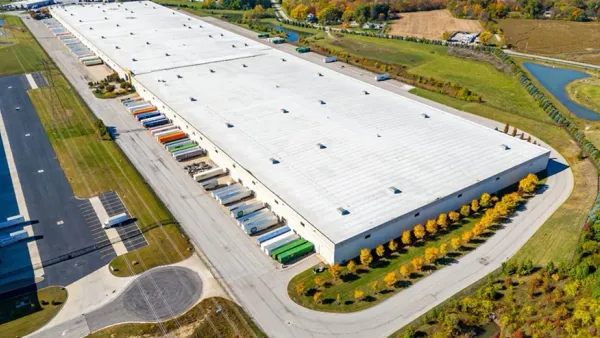Dive Brief:
- Peloton announced last month it will cease manufacturing its exercise equipment, part of an effort to simplify its supply chain in response to declining consumer demand.
- The company, known for its at-home exercise bikes and treadmills, will halt operations at Tonic Fitness Technology facility in Taiwan through the remainder of the year. Peloton acquired Tonic in 2019, and will now shift production capacity to Taiwan-based Rexon Industrial Group.
- The operational pivot comes months after Peloton laid off roughly 20% of its corporate workforce amid steep revenue losses.
Dive Insight:
Peloton bikes became hugely popular during the height of the COVID-19 pandemic as people exercised at home. The spike in popularity prompted the company to expand production capacity, even announcing plans for its first U.S.-based factory in Wood County, Ohio last year.
But as people have migrated back to gyms in more recent months, the company has struggled to keep up, pulling the plug on the Ohio project in March, around the same time that it cut 2,800 jobs.
At the time of the cancellation, Peloton said it would "optimize its logistics network by reducing its owned and operated warehousing and delivery footprint, while scaling third party relationships," a plan that's come to fruition with the outsourcing of production to Rexon.
CEO Barry McCarthy, who came onboard earlier this year, has prioritized enhancing supply chain visibility and getting “our arms around inventory,” the executive said at the J.P. Morgan Global Technology, Media and Communications Conference in May.
“We’re managing a hangover, but we stopped drinking,” McCarthy said of Peloton’s high inventory levels. “So, there was the expectation that COVID was the new normal, and they were selling everything they could land in the country, and they ordered more. And the world changed, and we needed less. But it takes a while for less to find its way into the supply chain.”
In a bid to deal with some of these problems, the company brought on Andrew Rendich as its chief supply chain officer in March, who McCarthy highlighted in last quarter's earnings call as one of the key people addressing Peloton's logistical and inventory challenges.
"With labor force optimization and better utilization of our warehouse space, I think there's a lot we can do in the short term to make some good improvements," McCarthy said during the earnings call.
This story was first published in our Operations Weekly newsletter. Sign up here.














